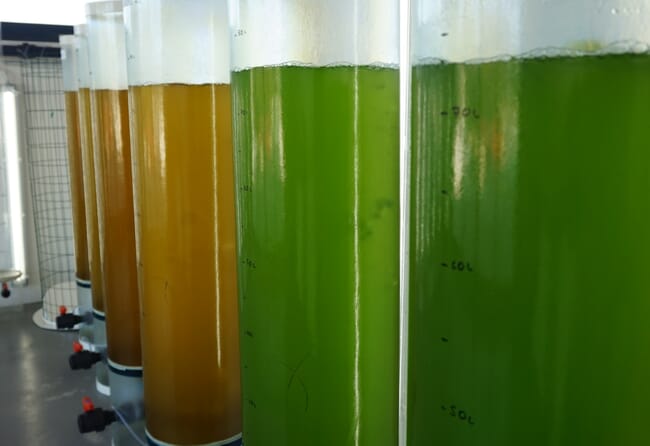So concluded a team of Brazilian researchers after setting up a study to evaluate the use of algal meal made from Aurantiochytrium species as a substitute for fish oil in the diet of juvenile Pacific white shrimp (Litopenaeus vannamei) reared in a clear‐water system.

© Algared
The researchers trialled diets in which levels microalgal meal used as a replacement for fish oil varied from 0 percent to 100 percent. After 46 days they established that replacing 44.7 percent of the fish oil for microalgae meal was optimal for growth rates, while the feed conversion ratio (FCR) of animals fed a diet of Aurantiochytrium sp. meal decreased at inclusion rates of up to 50 percent, with an optimal percentage of replacement estimated at 49.3 percent.
The microalgae diets also increased the levels of the long chain polyunsaturated fatty acid docosahexaenoic acid (DHA) in shrimp muscle tissue from 10.03 percent to 14.28 percent.
As a result, the researchers concluded: “The partial replacement of fish oil by microalgae meal resulted in improved shrimp growth and FCR, and total replacement of dietary fish oil had no negative effects on these parameters. In addition, inclusion of microalgae meal raises the level of DHA in shrimp muscle.”
The study was published in the latest edition of Aquaculture Nutrition, under the title: Aurantiochytrium sp. meal can replace fish oil in practical diets for the juvenile Pacific white shrimp.



